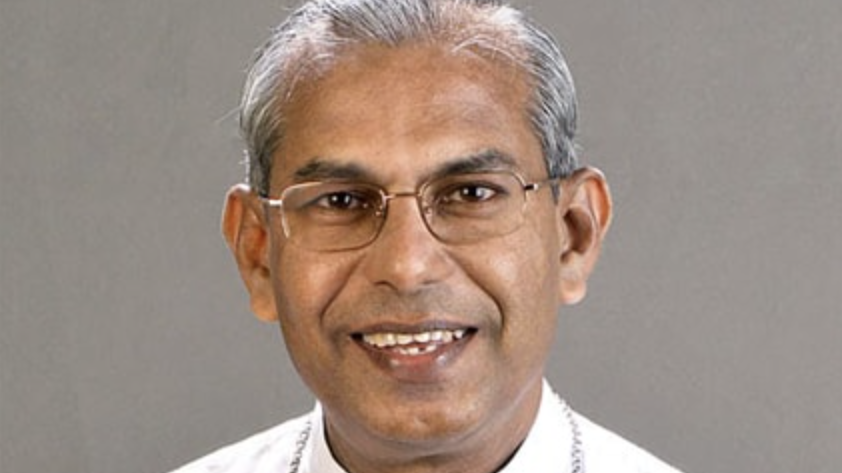The Vatican has appointed an apostolic administrator for an Eastern-rite archdiocese in southern India where a decades-old liturgical dispute continues with the change in leadership.
The Vatican named Archbishop Andrews Thazhath, an expert in the Eastern Catholic Code of Canon Law, to replace Archbishop Antony Kariyil, metropolitan vicar of Ernakulam-Angamaly Archdiocese, ucanews.com reported Aug. 3.
Archbishop Kariyil was asked to resign by the Vatican for defying the Syro-Malabar Catholic Church's supreme synod in the liturgical dispute.
Archbishop Thazhath is reportedly tasked to end the dispute and implement liturgical unity by making priests of the archdiocese accept a liturgical formula approved by the bishops' synod.
According to the synod-approved form, the Mass celebrant turns to the altar during the eucharistic prayer, a move archdiocesan priests refuse to accept; they want to continue facing the congregation throughout the Mass.
Father Kuriakose Mundadan, representing archdiocesan priests, told ucanews.com that the priests and the laity in the archdiocese continue to demand Mass be celebrated in the traditional way, with the priest facing the congregation throughout.
"The change in leadership does not mean that we have changed our stand," said Father Mundadan. "We have conveyed our stand to the new administrator."
Archbishop Thazhath met with priests' representatives soon after he took charge, ucanews.com reported.
Cardinal George Alencherry, head of the Eastern rite Syro-Malabar Church, believes "the process to find a solution to the dispute has begun" with the appointment of a new administrator.
"The apostolic administrator will fix a date and begin to implement" celebration of the synod-approved Mass, Cardinal Alencherry told the media, but said he was not sure when "it will happen."
Church officials familiar with the developments say winning over priests and laity will be a huge task, as the liturgical dispute had become an emotional issue.
The nearly five-decade-old dispute was revived in August 2021 when the synod of the Syro-Malabar Church reiterated a 1999 synod call for uniformity in the liturgy.
A group of Catholics, led by some bishops, wanted to revive their ancient liturgy and wanted celebrants to face the altar, but some resisted it, seeking liturgical renewal on modern lines.
The synod presented its current position as a compromise formula for fostering unity among the community members and ordered its 35 dioceses to comply with it, beginning last November. Under this formula, the priest faces the congregation until the eucharistic prayer, then turns toward the altar until the Communion, after which he again faces the faithful.
Other dioceses in India and abroad implemented the synod formula despite dissent from some priests and laity.
Archbishop Kariyil tried initially to enforce the synod Mass in the archdiocese but relented to sustained protests by the priests and the laity, who even resorted to a hunger strike. He granted the archdiocese a dispensation from the synodal formula, ucanews.com reported.
Archbishop Kariyial was appointed vicar of the Archdiocese of Ernakulam-Angamaly in August 2019 as the priests and laity demanded the resignation of Cardinal Alencherry following his alleged involvement in church land deals, which incurred a loss of about $10 million.
Cardinal Alencherry denied the allegations but reportedly admitted before the church's synod that there were administrative lapses and a lack of oversight on his part.
Cardinal Alencherry, therefore, was retained as archbishop but divested of all administrative powers. The priests and laity still continued to demand his removal, as he was facing criminal cases related to the land deals.
Archbishop Thazhath, 70, a close associate of Cardinal Alencherry, will continue as the archbishop of Trichur Archdiocese alongside his new assignment.

